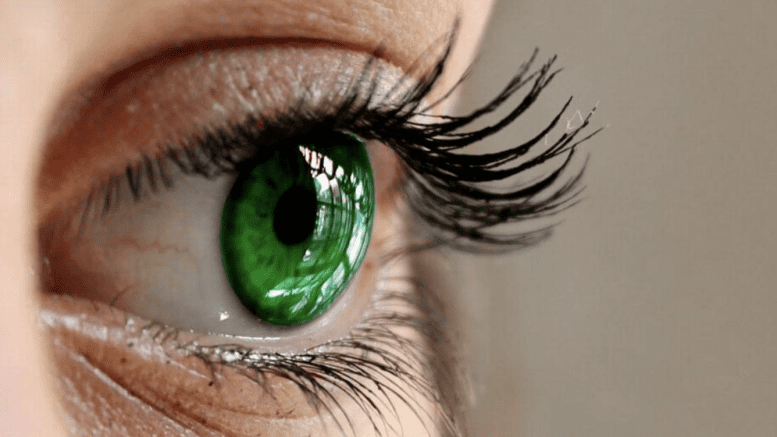- More by Zulfia Begum
New robotic contact lens allows you to zoom in by blinking
| BREAKING NEWS Al-Sahawat Times |
This story is currently developing. Further updates will follow To be notified of developments as they break |
|---|
Al-Sahawat Times | Ethical Global News from Oman and UAE | Donate HERE
The ground breaking new device mimics natural electric signals in human eyeball allowing wearers to zoom in!
A new robotic lens that is controlled by small eye movements, including double blinks to zoom in and out has been announced.
Most soft robots are controlled manually or pre-programmed but the lenses mimic the natural electric signals in the human eyeball that are active even when the eye itself is closed.
Researchers from the University of California San Diego harnessed this natural charge to control the lens.
They measured the electrical potential of the eye – called the “electro-oculographic signal” – and then made lenses that would respond to that activity.
Lead researcher Shengqiang Cai from the university told New Scientist: “Even if your eye cannot see anything, many people can still move their eyeball and generate this electro-oculographic signal.”
The lens is made from polymers that expand when electric current is applied.
It is controlled using five electrodes surrounding the eye which act like muscles. When the polymer becomes more convex the lens effectively zooms in.
Scientists hope one day this could help create a prosthetic eye or a camera that can be controlled using eyes alone for real time surveillance and recording in true first person.
“The system developed in the current study has the potential to be used in visual prostheses, adjustable glasses, and remotely operated robotics in the future,” researchers wrote in the paper published in Advanced Functional Materials.
Applications for the technology range from the further development into a prosthetic eye for the blind, improved vision to the visually impaired, genuine first person recording for entertainment and cinema, spying and surveillance for military and government use, covert tracking by switching normal lenses with recording lenses on targets, the evolution of how humans see by allowing all humans the ability to zoom in and record their daily lives.
The technology has been greeted with great excitement but also great concerns.
Since you’re here …
… we have a small favour to ask. More people are reading Al-Sahawat Times than ever but advertising revenues across the global media industry are falling fast. And unlike many news organisations, we haven’t put up a total paywall. We want to keep our journalism as open as we can. So you can see why we need to ask for your help. Al-Sahawat Times’ independent, investigative journalism takes a lot of time, money and hard work to produce. But we do it because we believe truly ethical media and an unbias perspective really matters.
“I appreciate there not being a paywall: it is more democratic for the media to be available for all and not a commodity to be purchased by a few. I’m happy to make a contribution so others with less means still have access to information.”
If everyone who reads our reporting, who likes it, helps fund it, the future of ethical media and the futures of our staff and their families would be much more secure. For as little as £1, you can support Al-Sahawat Times and it only takes a minute. Thank you.
This story is available on:
Talk to a journalist
Email: NewsDesk@alsahawat.com
Web: alsahawat.com
Follow Al-Sahawat Times
⬆️ Follow on Instagram
⬆️ Follow on Twitter
⬆️ Follow on LinkedIn
⬆️ Follow on Facebook
⬆️ Follow on YouTube
Read it on FLIPBOARD






